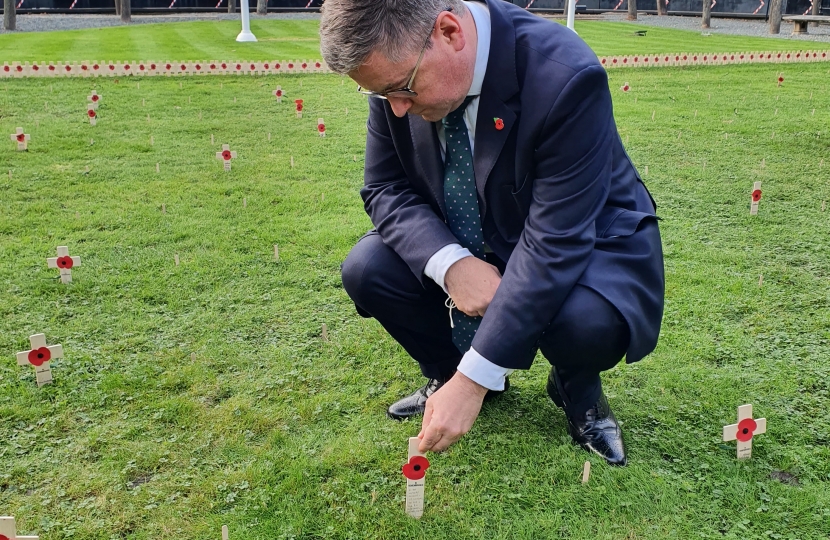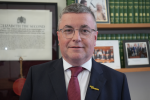
I was honoured to lay a wreath with other community representatives at Swindon Cenotaph on Sunday morning.
It is important that we honour and remember all Swindon armed forces personnel who made the ultimate sacrifice and who served to protect our freedom. It was also an honour to take part in the afternoon Remembrance Service at Radnor Street Chapel, in the cemetery where eighty of our Swindon armed forces who gave their lives in the Great War lie buried.
Last Friday I had the opportunity to visit the new Zurich building being built in Kimmerfields. This will not only be their new headquarters, but it will also provide space for other businesses and the community to utilise as well.
This development is right at the centre of the regeneration of our town centre as we redevelop Fleming Way with the £25 million worth of government funding that we achieved. I look forward to coming back to visit once it has been finished.
Following this visit I headed to the Tri Centre in the heart of Swindon. It is currently being managed by Fig Flex, a company which creates office space for entrepreneurs and other businesses to work in a modern and flexible way.
As we build back better from the pandemic, businesses like this are crucial and will play a big part in the regeneration of our town.
It was great to have the chance to visit the Swindon Hub over the weekend and see the important exhibition on the future of the Oasis. Like the overwhelming majority of people here in Swindon, I think it is really important that a viable leisure facility at the Oasis to continue.
This is not just about nostalgia; it is about securing the best possible future for this important community asset. I will continue to work closely with the Borough Council and others to ensure that this happens.
Yesterday I led what is known as an adjournment debate in the House of Commons on funding for autism and neurodiversity research.
Autism is a complex condition which affects about 1 million people here in the UK. Great progress has been made in recent years, but too many people remain undiagnosed or unsupported after diagnosis. Employment rates are the lowest of all disability categories and life expectancy is decades below others without autism.
In the debate I focused on funding for the government’s Autism Strategy which I helped sign off back in July. This strategy aims to: tackle the inequalities and barriers people face so they can live independent and fulfilling lives; ensure faster diagnoses and better access to health and social care for autistic people of all ages; and commits to support better education tailored to the needs of autistic children and young people.
It is important the aims of the Autism Strategy and backed by appropriate levels of funding – this is an issue I care deeply about and will continue to push the government to make the necessary investment to better support those with autism.




